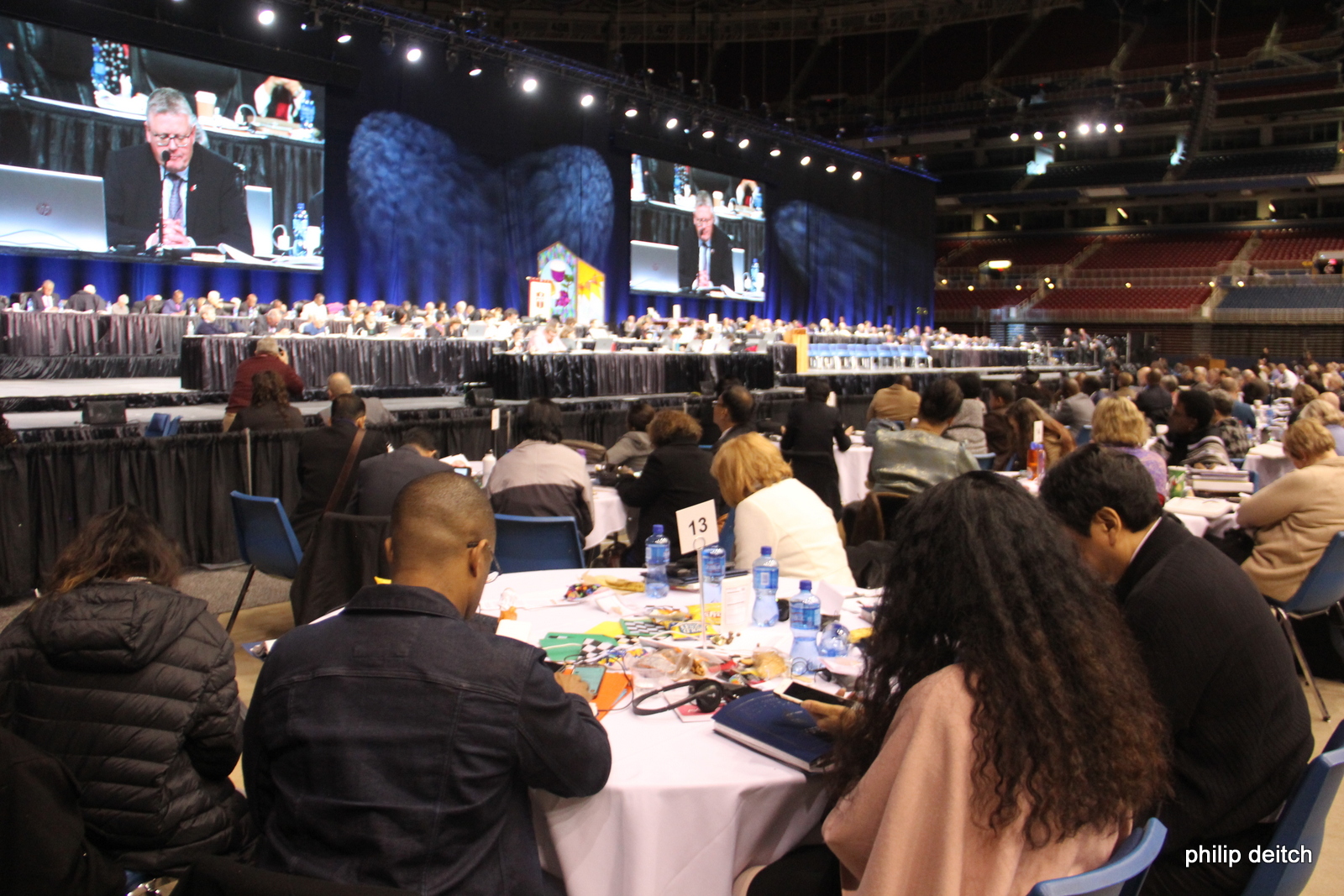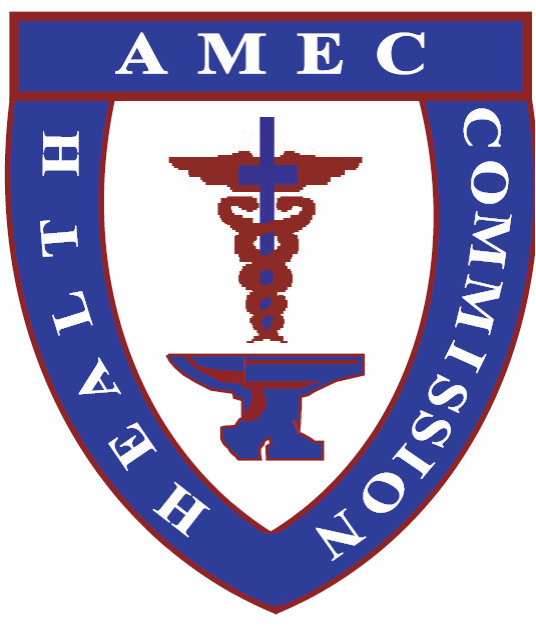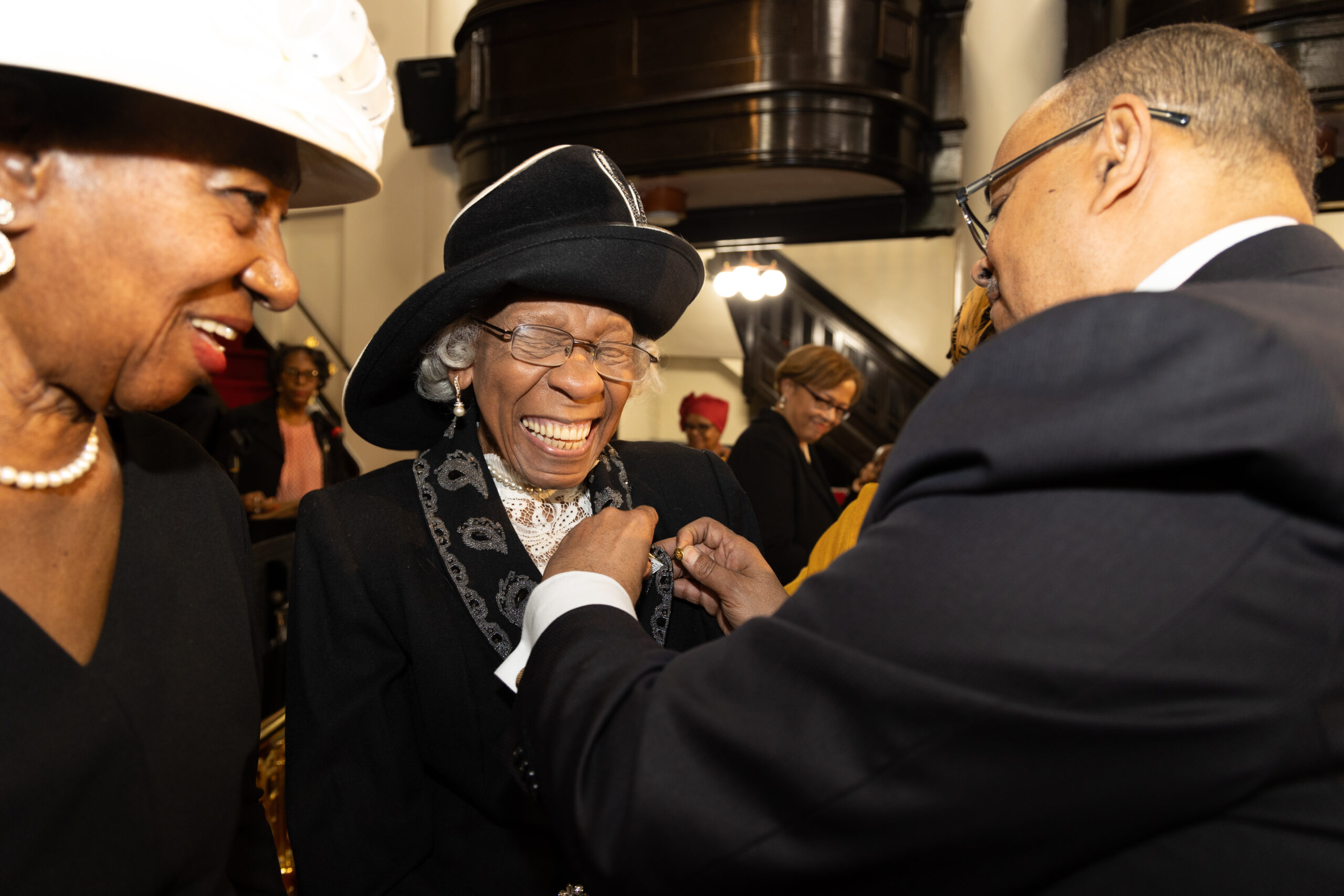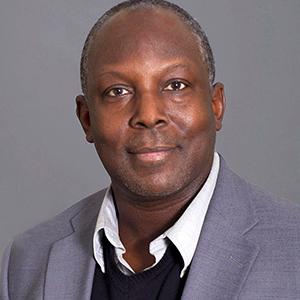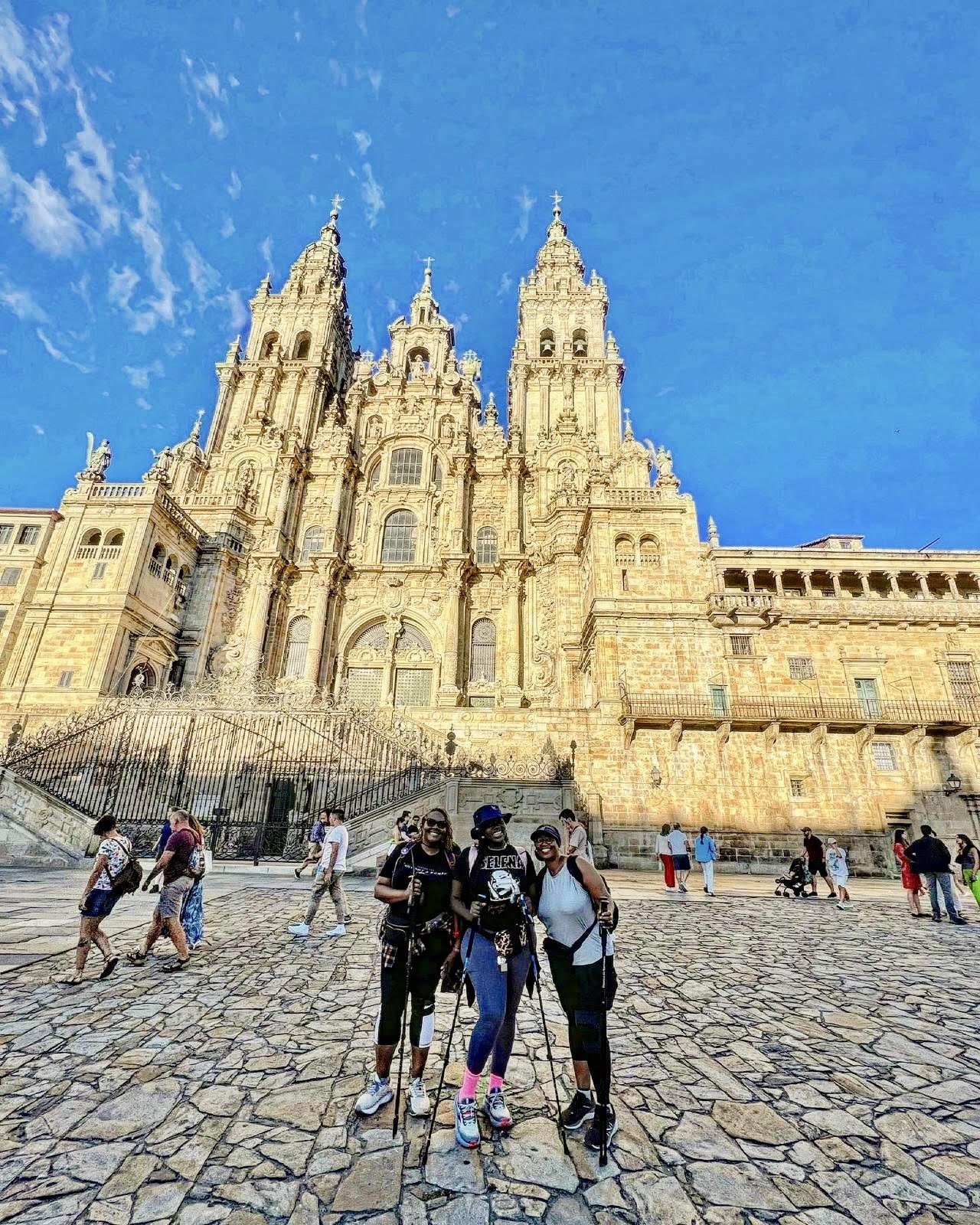By Rev. Renita M. Green, Columnist
Approaching the St. Louis Dome for the United Methodist Special Session of the General Conference, I walked upon a group of passionate demonstrators who were sticking up for God and God’s holiness. Concerned for the salvation of many, they took to bullhorns and signs to warn clergy and lay—the Church—of its impending fate for supporting “the gay agenda.” I walked up close to them to get better pictures and they were all too happy to have an audience. In addition to being told the “list” that would send me to hell, I was declared to be a “wild woman,” “feminist,” and “prostitute” as evidenced by my nose ring. These were the witnesses of God’s holiness and righteousness. Later, I learned they were likely from Westboro Baptist Church.
The Special Session was called to “finally deal with the LGBTQ [lesbian, gay, bi-sexual, transgender, and queer] issue,” as one conference-goer stated. The United Methodist Church’s Discipline forbids the marrying of same-gender couples and blocks the ordination of those who are “self-avowing homosexuals.”
The 32-member Commission on a Way Forward was formed from the 2014 General Conference. Their task was to develop a plan for the UMC to move into the next phase of life in a way that honored the voices and convictions of the body. After extensive and International travel, listening and struggling together, the Commission developed the One Church Plan. The Plan would allow each bishop, annual conference, pastor, and local church to practice their beliefs without threat of church trials. The mantra repeated throughout the Conference was, “United doesn’t mean uniformity.” The United Methodist Church budgeted $3.7 million for the Special Session.
The atmosphere was somber in the Dome. Prayer stations were strategically set up throughout the halls. At each station, there were points of contact, meditations, and even people with whom you could pray. In a designated area, there was an entire prayer court with a large cross, prayer wall, fountain, make-shift chapel, and a small room where one could meet with a spiritual guide. In this space, there were no church politics or sides to be taken. The message in this area was clear: God has called us to love one another.
The first day of the Session was a day of prayer. It was a call to repentance and challenge to love. For nearly seven hours, the Church met to pray together. There’s the strange sense of hopefulness in prayer like somehow God is going to be on one side or the other. There’s also a sense that God is on the side of the winner like it is the one whose prayer is answered.
“Love” was a resounding message, in an almost scripted fashion, regardless of their perspective. It was as if they were supposed to say how much they loved “the other.” Phrases of the profession were in writings, songs, prayers, sermons, delegate speeches, and conversations.
Self-professed Traditionalists talked about loving the LGBTQ community with a heavy feel of paternalism. “We love them, that’s why we got to save them from themselves,” a lay member said. I listened as a Traditionalist pastor told an LGBTQ pastor, “I love you. The Church loves you. We just can’t accept you.” He had a strong sense of needing to protect others in the church from the unrepentant sinners among them. If it appeared that the sins were being condoned, what would become of the Church?
I asked an LGBTQ delegate how they felt about the love being expressed. “Love without acceptance is garbage theology,” she declared. Those who were on the progressive end of the issues talked about their love in the sense of “Love your enemies, do good to those who hate you, bless those who curse you, pray for those who abuse you” (Luke 6:27-28). It’s been hard to let sink in that we love enemies when they are pastors, lay leaders, and bishops. At least for one queer clergyperson, this list included her mother who was also a delegate vowed to vote for the Traditional Plan.
It seems as if the Council of Bishops attempted to demonstrate their love for the Church through the Commission on a Way Forward. Reading the Commission’s 93-page report submitted to the Council, it is evident that through the One Church Plan, the Commission desperately sought a path for which the entire body could remain in-tact without compromising their sense of faith.
However, there were some driven by forces outside the context of scripture, as evidenced by the strong emphasis on pensions and disaffiliation plans also hotly debated. It appears that the fundamentalist sect who call themselves the Wesleyan Covenant Association (WCA) want to break from the parent body and take as much with them as possible including cash, investments, real estate, identity, and membership. They are clearly willing to execute the spirit of any Methodist who gets in their path. The LGBTQ community was put up for slaughter. To disagree with the WCA was marketed as being against God and God’s Word.
Friends and defenders of the LGBTQ community are not without casualties either. As the spiritual bludgeoning continued, those who held the majority votes continued to say, “But we love you” with each blow.
Some of the same reasoning for slavery and the oppression of women were used in the arguments for the oppression of people within the LGBTQ community. As the Rev. Dr. Traci West of Drew University stated, “They are not the same but stem from the same heart.” Perhaps the real issue is the Church’s unwillingness to see the humanity of those who are outside their own framework of righteousness or worthiness.
The Traditional Plan won with less than a 10% margin. To be sure, there were no winners in this battle. Later, in the corridor, I heard one say to another in a whisper, “God heard us. God heard us.” Others have the sense that the loss was just God strengthening them for the resistance.
I went to this Special Session with my own questions. I wondered when or if our Zion would begin to openly discuss LGBTQ issues as they pertain to full inclusion. I was on the lookout for what we could learn from processes and outcomes. I left the conference feeling spiritually and emotionally drained. I pray that when we are challenged to wrestle with our faith and theology, we will love—really love—each other, without bludgeoning.
In conversation with Senior Bishop AJ Richardson about our future, he shared this wisdom, “Love is at the heart of the language we speak—agape, philos, eros—but, we have a hard time focusing it. We are sometimes more faithful to what we believe the gospel says that we are to the one of whom the gospel speaks.” He went on to say that we must not be Bible-thumpy theologians; rather, we must seek an open and honest embrace in love. We must choose a theology of love.

